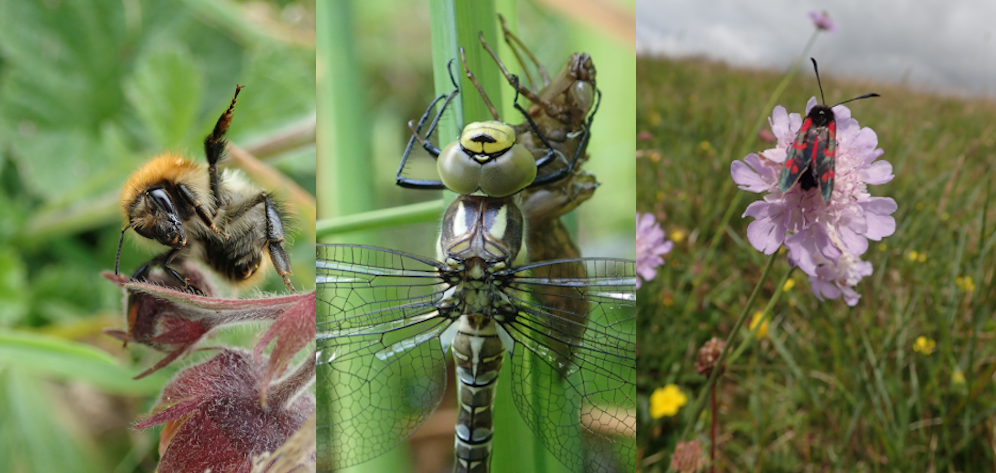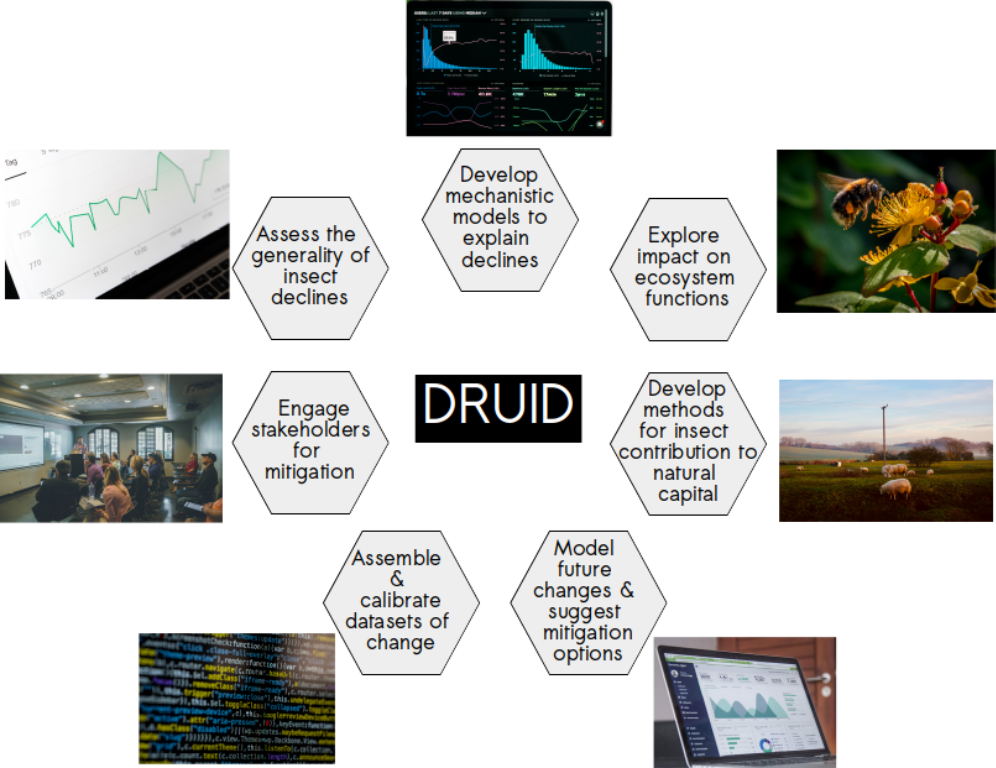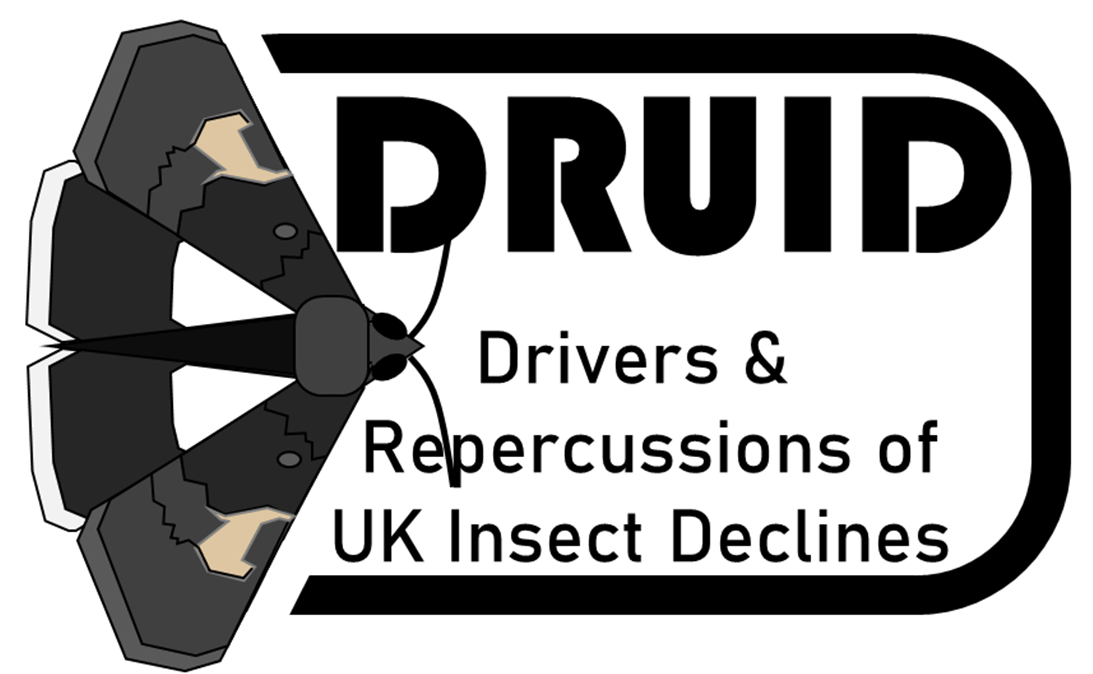
Insect populations face pressures from multiple drivers including intensified land use, climate change, pollution, and novel pests and pathogens. While these drivers have long been recognized, research into the complex, potentially interacting effects of drivers acting in combination is lacking. Despite growing public concern, there is remarkably little hard evidence of general, cross-taxon insect declines in the UK or abroad.
DRUID will provide a step change in evidence on recent insect population and community trends for the UK. It will bring together the widest possible set of standardised monitoring data with two contrasting sets of more spatially comprehensive data: modelled occupancy and abundance estimates from species records in biodiversity databases, and novel biomass, abundance and morphodiversity estimates from post-processed radar data.
Using these data, DRUID will assess the drivers of change in terrestrial and aquatic insect populations and communities and fully quantify the links between these populations and natural capital.
DRUID brings together four of the UK’s foremost institutions working on insect dynamics and monitoring, with a long history of collaboration. Our researchers have played a substantial role in documenting past insect declines, and in helping set research and policy agendas in this area.
DRUID is funded by the Natural Environment Research Council (NERC), as part of its 6th round of Highlight topic funding on “Understanding, predicting and mitigating the cross-ecosystem impacts of insect decline on ecosystem services and natural capital” (https://nerc.ukri.org/research/portfolio/strategic/topics/).

DRUID maintains a close association, and works collaboratively with the members of the GLiTRS programme (https://www.ceh.ac.uk/news-and-media/news/investigating-links-between-human-activities-and-global-insect-declines), also funded under NERC Highlight topic funding call for global insect trend assessments.
